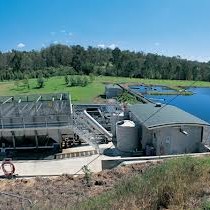 The Federal Government has chipped in with a grant for $4.4 million towards a large carbon abatement project likely to be implemented at JBS Australia’s Dinmore beef abattoir in Southeast Queensland.
The Federal Government has chipped in with a grant for $4.4 million towards a large carbon abatement project likely to be implemented at JBS Australia’s Dinmore beef abattoir in Southeast Queensland.
The dollar-for dollar grant was announced on Friday under the Government’s Clean Technology Food and Foundries Investment Program.
In a statement, Industry and Innovation minister, Greg Combet said the $8.8 million project was an example of the Government partnering with food manufacturers to improve their competitiveness and energy efficiency, and reduce carbon emissions.
He said the Dinmore project was expected to save JBS Australia $1.1 million a year in energy costs, while cutting the company’s carbon price liability by $790,000 each year.
As a ‘large’ emitter under the Federal Government’s carbon tax legislation, JBS Dinmore since July 1 last year has been directly liable to a $23/tonne tax on carbon emissions, calculated to cost the plant about $3.5 million each year.
Subject to a final internal commercial assessment of the cost-effectiveness of the project, JBS Australia will use the grant, plus a further $4.4 million of its own money, to upgrade its waste water treatment system by installing new pre-treatment equipment and covered anaerobic lagoon technology.
The existing natural gas-powered boiler plant will also be modified to use biogas generated from the project.
"The project is expected to reduce the carbon emissions intensity of the Dinmore site by 81 percent. This will be extremely beneficial to the company's bottom line," Mr Combet said.
The development would not reduce the plant’s carbon output below the ‘magic’ 25,000t threshold over which direct carbon tax is paid, however, but would lower the current carbon output level of 80,000t/year to around 35,000t.
Given that management of such projects logically tends to mean that the ‘low hanging fruit’ are picked first, further development to push Dinmore below the 25,000t figure could cost as much as $16 million, Beef Central was told.
Such expenditure on further carbon abatement would have to be weighed-up against other important cap-ex projects, which might improve productivity or efficiency in the boning room or kill floor, for example.
JBS expects to complete its due-diligence on proceeding with the current project some time next week.
The Dinmore project represents the second largest grant made so far under the Government’s Clean Technology scheme grants, exceeded only by a $6.2m allocation made to renderer, AJ Bush, to upgrade boiler systems at its factory near Beaudesert.
The Dinmore project, should it go ahead, is just the latest in a long list of projects JBS has undertaken at its Dinmore site in the area of environmental management. The company has spent tens of millions of dollars already over the past ten years on environmental/sustainability projects, in areas like water treatment, establishing excellent performance credentials in the environmental area.
The site operates with arguably the most stringent environmental license conditions on waste water management, and motor and other noise abatement of any meat plant in Australia.
"I am proud to have worked with JBS Australia in supporting the important Dinmore project," the local Federal Member for Blair, Shayne Neumann said in Friday’s statement.
"The Federal Government is working in partnership with this important local employer to improve its operations while providing positive environmental outcomes."
“The Dinmore facility is used for slaughtering, boning, packaging, by-products rendering and hide processing. The improvements planned on site will help to cut their carbon emissions and save substantially on energy costs,” Mr Neumann said.
The Government’s $200 million Clean Technology Food and Foundries Investment Program and the $800 million Clean Technology Investment Program are both funded by carbon price revenue to support manufacturers.
In addition to the Clean Technology Investment Programs, the $200 million Clean Technology Innovation Program is funding Australian businesses to develop new clean technologies.
Under the original terms of the Government’s carbon project grant scheme, larger processing companies were eligible for only $1 for every $3 of company funds spent, but Minister Combet relaxed the conditions to dollar-for-dollar late last year after being convinced by industry that uptake would otherwise be poor, without deeper government support.
Grant recipients still pay 30c in the dollar tax on the grant component. Each project is broken into various milestones, with grant payment made on the successful completion of each, meaning companies involved still have to fund the cash flow requirements through internal financing.
Final payments, subject to further scientific evaluation of the project, may in some cases be held up for another 12-18 months.
With Prime Minister Gillard announcing a Federal election for September 14, some observers say there could be a rush of project applications for grants under the Clean Technology scheme in coming months, aware that Opposition Leader Tony Abbott has committed to removing the controversial and costly carbon tax if the Coalition is returned to Government.
